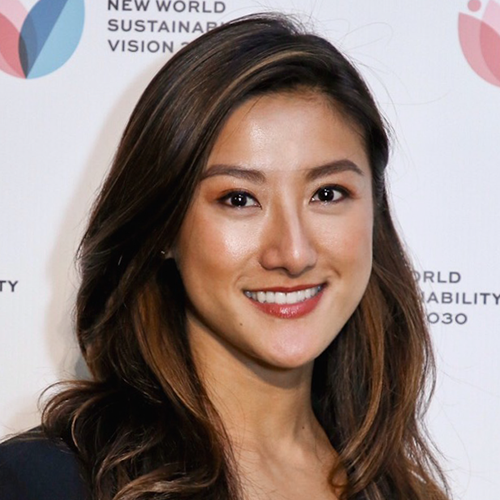Singapore-headquartered Lion Global Investors (LGI) is leveraging artificial intelligence (AI) to keep pace with fintech innovations and the enormous growth of data.
LGI conducts traditional fundamental analysis using public disclosures from listed companies and inputs from sell-side research to make investment decisions. Its current process uses pre-processed information to make investment decisions.
But with the massive growth in data, LGI’s investment team has acknowledged the need to use AI to keep up with this escalation and to incorporate the use of new types of data, which could potentially be difficult for humans to handle.
The use of AI aims to improve LGI’s decision-making process and reduce reliance on employee institutional knowledge as AI and data analytics techniques that incorporate quantitative models have proven to be more scientific and systematic.
Beyond using AI to analyse larger volumes and new types of data, LGI will also be using AI-powered techniques to recognize patterns and infer interactions between different types of data (for example, structured and unstructured).
Disruptive coder
Ong Ai Ling is the portfolio manager for LGI’s Global Disruptive Innovation Fund (GDIF) and the head of its artificial intelligence of investments (AIOI) team.
From her early childhood, it is a role that Ong seems to have been destined to take on as she actually started coding when she was about 10 years old. And while Ong was studying Law at Cambridge University, she was one of the very few law students who could probably code as proficiently as she could draft a contract.
Fittingly, AI is being calibrated so it overlays and then fuses into the screening process of the GDIF, a vehicle that invests in 100 stocks of disruptive global companies, those that change the traditional way an industry operates. These companies are in sectors ranging robotics, electric vehicles, big data and the internet of things to social media platforms.
Traditionally, the stocks in the GDIF portfolio are selected by a five-factor screening process, but with the AIOI, the parameters, while not infinite, are fully stretched.
As Ong points out, “traditional fund managers have their own well developed skill sets, they are able to deal with ambiguity or handle incomplete information and, through years of reasoning skills, are capable of handling rare events.”
Ong’s own fund management experience is robust. She started her investment career in London and has over 16 years of experience managing Asia-Pacific and global equity investments.
By contrast, AI has enormous computation power and is able to process huge datasets. It is also excellent at conducting repetitive tasks, but it can also quickly identify complex patterns, most probably well ahead of a traditional fund managers’ astuteness.
Prior to officially launching the AI overlay on the GDIF this month, Ong points out that the AIOI team had been running an AI strategy for one of the firm’s internal funds for a year and, based on that success, have finally launched a public-facing product.
Data overload
But with so much more information available than ever before, could there actually be too much data? Is that even possible?
“I guess, yes,” Ong says. “You could have too much data, and that would add too much noise because the financial markets inherently are a much more noisy data place than other marketplaces. And in fact, one of the challenges we faced when we were scaling this up, building the AIOI, was that financial market data points tend to be very noisy. So, the model that we built – and we hope we've built it sufficiently well – has to inherently be robust enough to handle all the noise in the financial database.”
The calibration of the AIOI never stops for Ong and her team. She jokes that she will always have a job because in some ways, the machine hasn't yet reached the level of sentience where it can figure out what is a totally irrelevant set of data.
And that is relevant, she says, as “it actually still requires humans like me to do a little bit of that pre-processing or that thought process.”
Disrupting oneself
So now that the AIOI tools are in place how long will it be before investors in the GDIF see any difference or will they even notice any change?
“I hope they'll see some difference in terms of performance,” Ong says. “That's what we're aiming for. In the old system, management of the GDIF was based on a more static set of conventional and limited factors that you look at. For example, traditionally we will look at market cap prices, sales, earnings, growth, etc. Now with layering AIOI, we have been able to incorporate almost 40 different factors into our model. And not only is it 40 factors, but they're not static.
“If I look at say 40 different factors for one stock, and I multiply that across just Asia alone. It's something like 2,000 to 3,000 stocks to look at. There are 40,000 data points that I need to look at this quarter. Then I have to look back maybe three months, four months, six months, [and then] you know, three years, five years, and then that's way too many data points.”
Ong says she used to be crunching all that data in her head with an excel spreadsheet. But trying to do that manually and effectively is not practical or sensible.
“There's way too much information for a single human to process no matter how gifted he or she may be. So, when we started this project, it started very much with the genesis that I was trying to disrupt myself.
“And I realized that rather than relying on my brain, my sheer little brainpower here, why not use the cloud technologies that are available at a very reasonable price these days.
“So, basically, what we’re doing is not just investing in a disruptive fund that invest into disruptive technologies, but we're trying to use the different disruptive technologies to disrupt ourselves as fund managers.”









